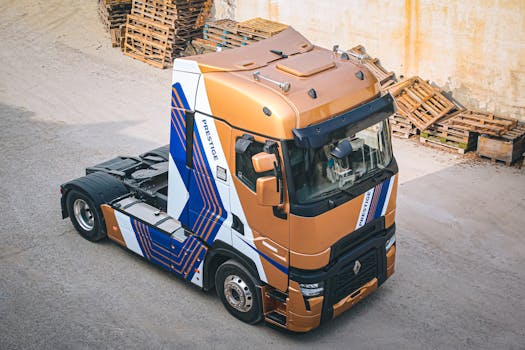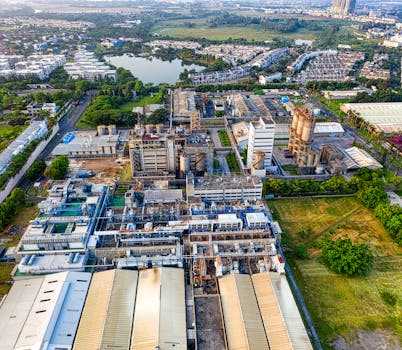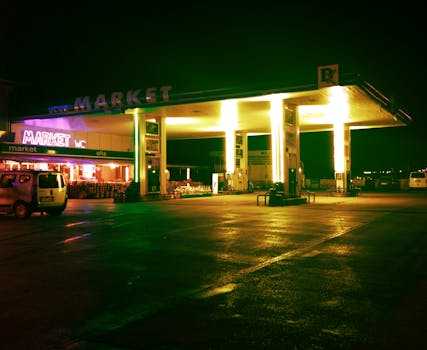
**
Renault Trucks and M&S Reach Electric HGV Milestone: A Green Revolution in Logistics
The logistics industry is undergoing a significant transformation, driven by the urgent need to reduce carbon emissions and embrace sustainable practices. A major step forward has been taken with Renault Trucks and Marks & Spencer (M&S) celebrating a key milestone in their collaboration: the successful deployment of a fleet of electric heavy goods vehicles (HGVs) for commercial operations. This landmark achievement signifies a pivotal moment for the future of electric trucking and sustainable supply chains. The partnership showcases the viability and practicality of electric HGVs, paving the way for wider adoption across the sector. This news is significant for several key reasons, including advancements in electric vehicle technology, the growing demand for sustainable logistics solutions, and the increasing pressure on businesses to meet environmental regulations.
A Landmark Partnership: Renault Trucks and M&S Lead the Way in Electric HGV Adoption
This joint venture between Renault Trucks, a leading manufacturer of commercial vehicles, and M&S, a renowned British retailer committed to environmental sustainability, marks a considerable achievement in the transition to zero-emission logistics. M&S has integrated a substantial number of Renault Trucks E-Tech electric HGVs into its distribution network, demonstrating a tangible commitment to reducing its carbon footprint. The collaboration highlights the growing importance of partnerships between manufacturers and large-scale businesses to accelerate the adoption of sustainable transport solutions. This initiative is not just about environmental responsibility; it's also about improving operational efficiency and showcasing the capabilities of electric HGVs in real-world applications.
Key Achievements and Impact
- Reduced Carbon Emissions: The deployment of electric HGVs significantly reduces greenhouse gas emissions compared to diesel-powered counterparts, contributing to M&S's broader sustainability goals and aligning with global efforts to combat climate change. This is a crucial element in achieving net-zero targets for companies and governments alike.
- Improved Air Quality: The transition to electric HGVs contributes to cleaner air in urban and suburban areas, benefiting local communities and public health. This is particularly significant in densely populated areas where air pollution from diesel vehicles is a major concern.
- Enhanced Brand Image: By investing in sustainable transportation, M&S strengthens its brand image and appeals to environmentally conscious consumers. Sustainability is increasingly a key factor in consumer purchasing decisions, making this a strategic move for the retailer.
- Technological Advancement: The successful integration of Renault Trucks E-Tech electric HGVs demonstrates the maturity and reliability of electric HGV technology, encouraging further investment and innovation in the sector. This success story will undoubtedly encourage other businesses to explore similar options.
Overcoming Challenges in Electric HGV Adoption
While the milestone is a significant victory, the transition to electric HGVs isn't without its challenges. The high upfront cost of electric vehicles remains a major barrier for many businesses. Range anxiety, particularly for long-haul transportation, and the availability of sufficient charging infrastructure also pose significant obstacles. However, this partnership demonstrates that these obstacles can be overcome with strategic planning and collaboration.
Addressing the Challenges:
- Financial Incentives: Government subsidies and tax breaks can play a crucial role in making electric HGVs more financially attractive to businesses. Investing in grants and incentives is vital for driving wider adoption.
- Charging Infrastructure Development: A robust network of fast-charging stations is essential for supporting widespread electric HGV adoption. Investment in charging infrastructure must keep pace with the growing demand.
- Technological Innovation: Continued advancements in battery technology, particularly in terms of energy density and charging speed, are crucial for overcoming range limitations and reducing charging times. Research and development are essential for future success.
- Operational Optimization: Efficient route planning and energy management strategies are vital to maximize the range and efficiency of electric HGVs. Software and technology solutions are key here.
The Future of Electric HGVs: A Growing Trend
The Renault Trucks and M&S collaboration is not an isolated incident; it's part of a larger trend towards the electrification of heavy-duty vehicles. Many other companies are investing in electric HGVs, recognizing the long-term benefits of sustainable transportation. This momentum is driven by several factors, including stricter emission regulations, the increasing availability of electric HGV models, and the growing awareness of the environmental and economic benefits of electric transportation.
Looking Ahead:
- Increased Model Availability: We can expect to see a wider range of electric HGV models entering the market in the coming years, catering to different operational needs and budgets.
- Improved Battery Technology: Advancements in battery technology will lead to increased range, faster charging times, and lower costs, making electric HGVs even more attractive.
- Government Regulations: Stricter emission regulations will incentivize businesses to adopt cleaner transportation options, further driving the adoption of electric HGVs.
- Smart Logistics Solutions: The integration of electric HGVs into smart logistics networks will optimize operations and enhance efficiency.
The success of the Renault Trucks and M&S partnership serves as a powerful example of the potential of electric HGVs to revolutionize the logistics industry. This milestone is not just about reducing emissions; it's about creating a more sustainable, efficient, and environmentally responsible future for the transportation sector. The collaboration showcases a path forward for other businesses seeking to integrate sustainable practices into their operations, demonstrating that a greener future for logistics is not only possible but also practical and beneficial. The future of freight transportation is electric, and this partnership is leading the charge.



















